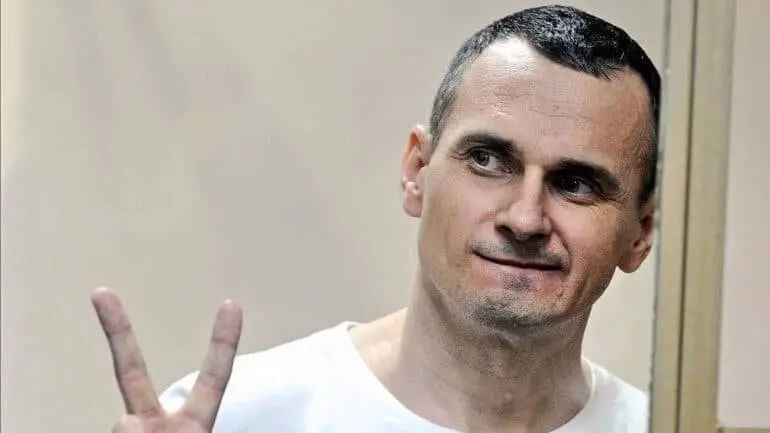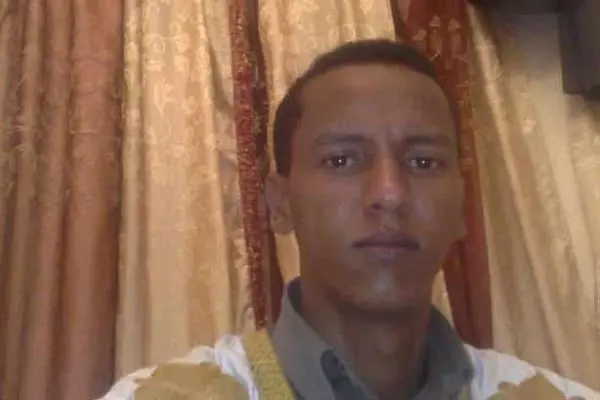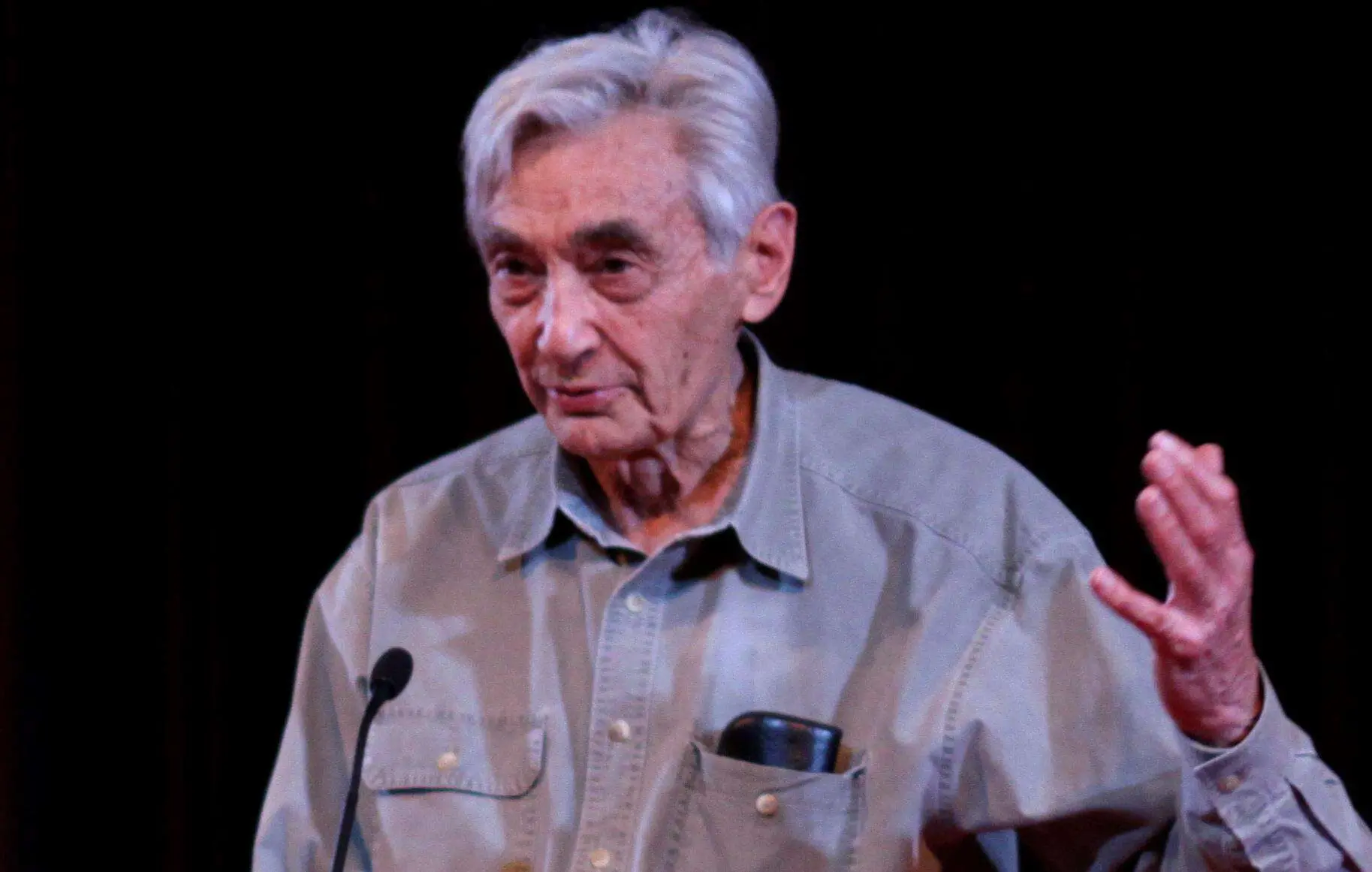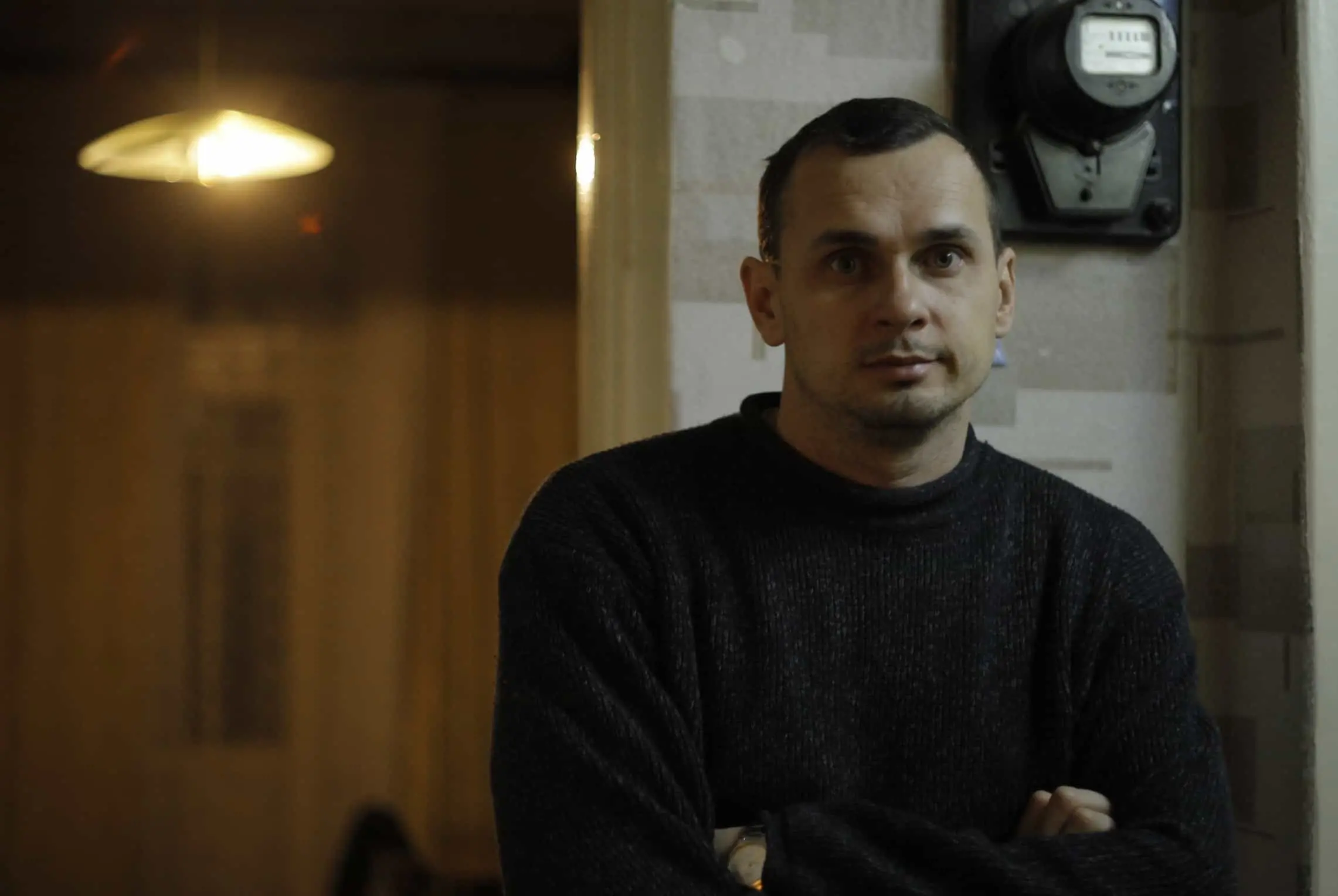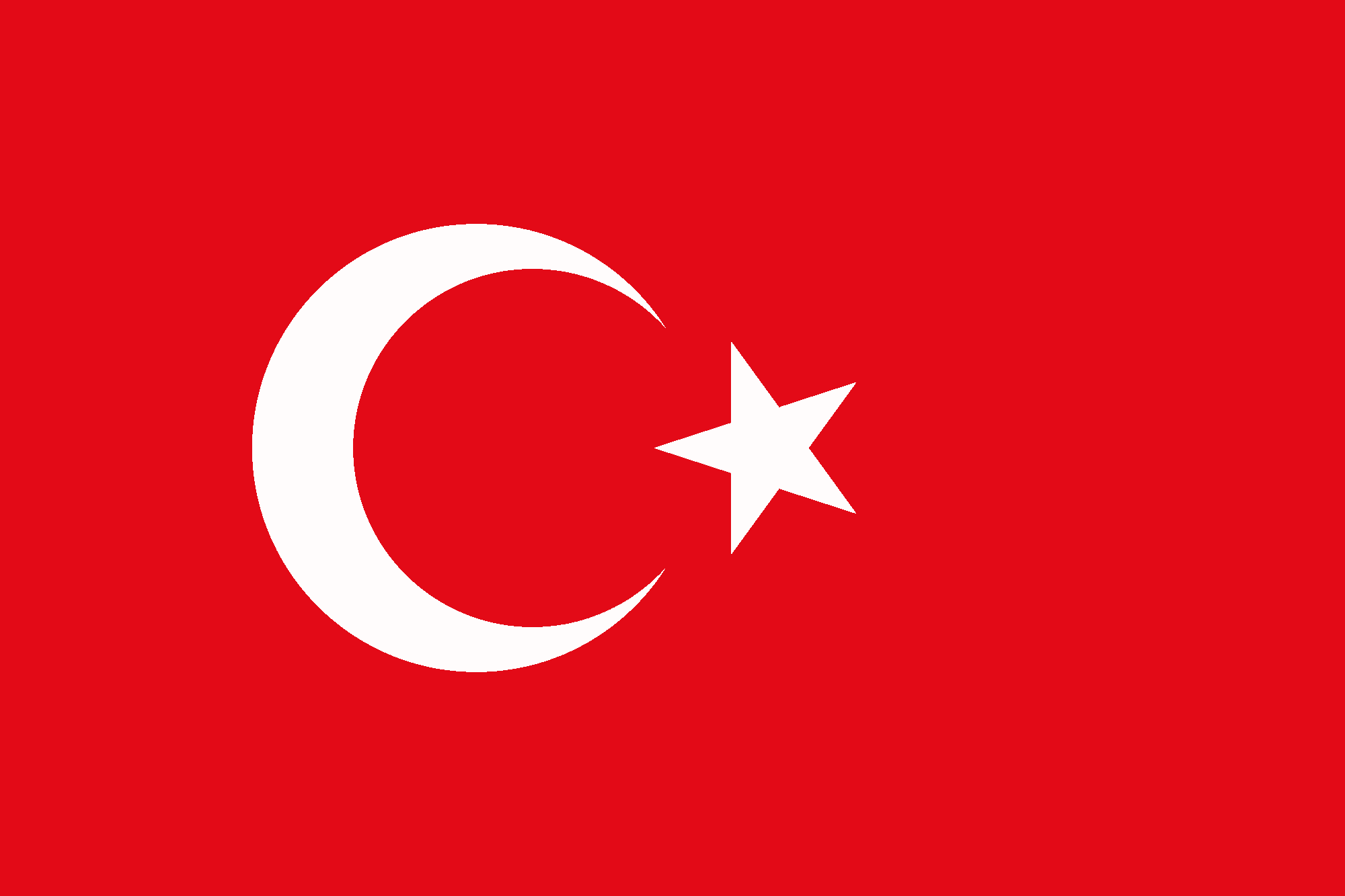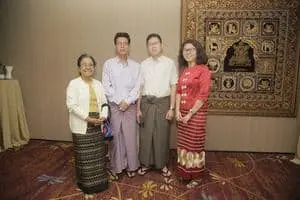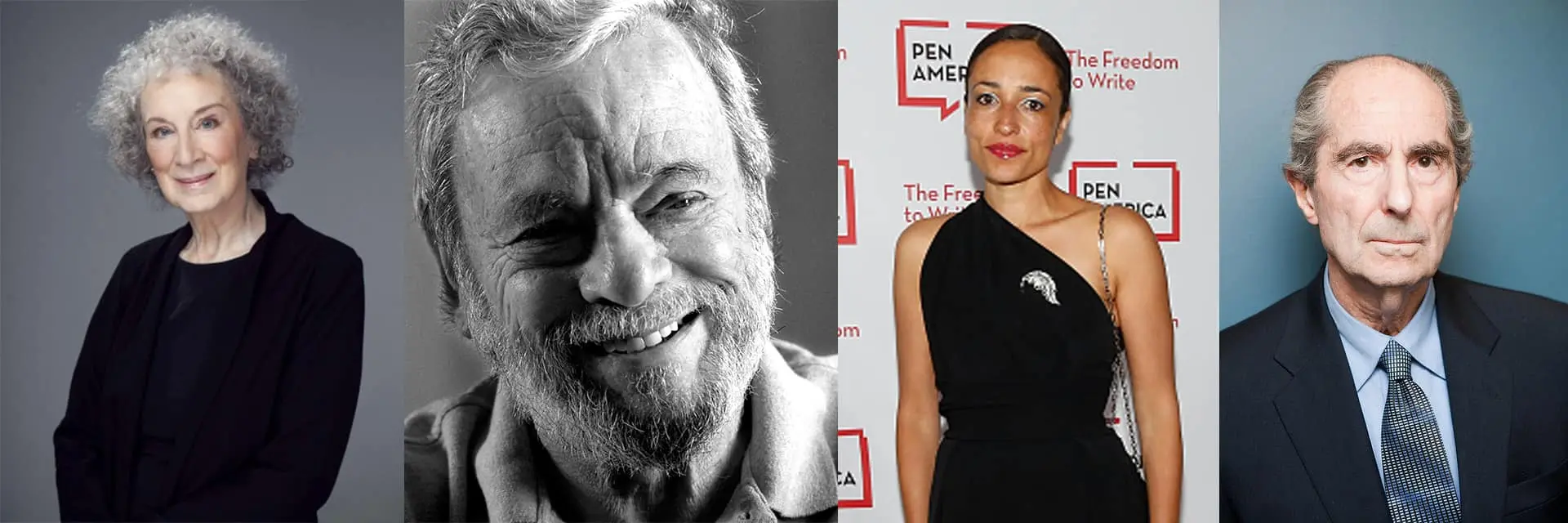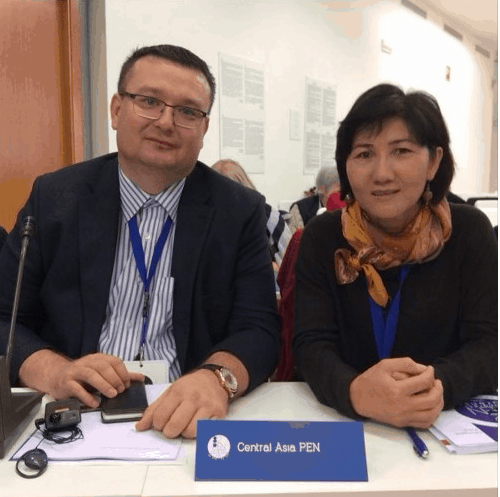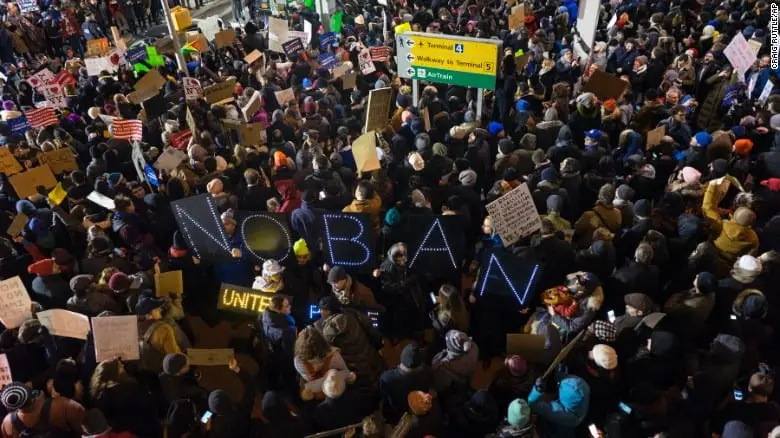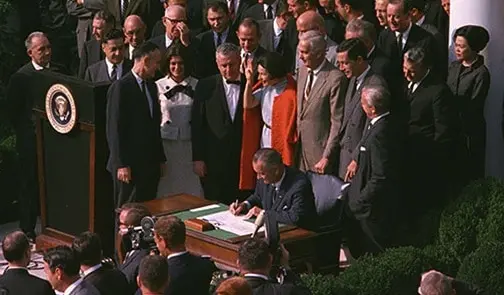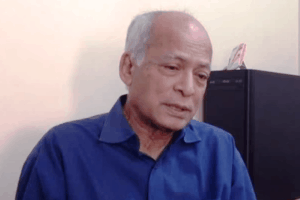The M Word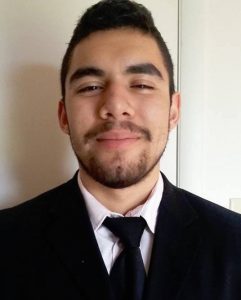 seeks to elevate, amplify, and celebrate the contributions of Muslim Americans to our country’s varied and inspiring cultural landscape. To help us, we are inviting audience members, online followers, panelists, and others—both Muslims and non-Muslims alike—to share their personal experiences with what it means to be Muslim in America.
seeks to elevate, amplify, and celebrate the contributions of Muslim Americans to our country’s varied and inspiring cultural landscape. To help us, we are inviting audience members, online followers, panelists, and others—both Muslims and non-Muslims alike—to share their personal experiences with what it means to be Muslim in America.
Today, we share Antonio De Jesus Lopez’s story on being a Latinx Muslim American. The piece began as Lopez’s response to The M Word’s questionnaire, but after subsequent political developments impacted Lopez “both spiritually and culturally,” he asked to revise his initial responses. What follows is a thoughtful meditation—and poem—on identity, faith, and community.
Do you identify as a Muslim? Or have you been identified as a Muslim? If yes, please tell us about it.
My identity as a Muslim is extremely recent. I took my shahada on November 20, 2015, as a first semester senior at Duke University. That day held two events: My alma mater hosted a conversation with the original title “Duke: A Conversation.” For context, that previous month, on October 20, 2015, Concerned Student 1950 issued a list of demands to the University of Missouri that culminated in the apology (and eventual resignation) of President Tim Wolfe. Student activists from Claremont McKenna, Georgetown, Yale, and Cornell took inspiration from Jonathan Butler’s hunger strike and spearheaded sit-ins, die-ins, teach-ins, and other acts of civil disobedience. Our president, Richard Brodhead, perhaps sensing the ensuing tidal wave, hosted a town hall meeting at our Page Auditorium. I, along with Vice President of the Latino Student Body Mi Gente, stood before the impromptu assembly to present to this institution of higher education the needs of our community.
The conversation took place at 5 pm. At noon of that day was the weekly Jumu’ah. A week after the Paris attacks, Imam Rashid addressed an anxious black Salafi community with the Qur’an’s unequivocal condemnation of terrorist attacks. His recitation, the language of scripture itself, seemed so beautiful. The humility of the post-khutbah announcements—“We need 60 dollars for the water bill”—warmed my heart so much. I decided, partially swept up in the moment, partially due to the uncanny encounters with Muslims prior (conversing with a card-carrying member of the Nation of Islam on the plane ride to my freshman year; my high school years studying the freedom fighter Malcolm X; the fellowship of this mosque’s brothers; the act of prostration—God, the act of prostration!; the sense of profound peace after each prayer, despite my not speaking a lick of Arabic—no hay palabras para describir the joy that flooded through my heart; flirting with a sister who worked at Duke), and finally, the beautiful turmoil stirring inside of me as I walked back from the library to my on-campus apartment—how I set my bag down mid-stairs, and I cried to something. No, I haven’t told my parents any of this. But I told the imam I was ready, lifted my index finger, and uttered the faithful words.
This date, like the fruit, reveals a pit of truth: As an infant to the din, from my first steps, my spirituality immediately touched the ground with a passion for social justice. The proximity of the two is no farther than when my forehead presses the ground during salat. Thanks to the support of local Muslims in North Carolina’s Raleigh-Durham area, as well as Duke’s MSA chapter, I welcomed Islam into my heart. And as a new convert, one deed I see fit is to create spaces that allow these narratives to speak in all their intersectional flesh.
Describe what it means to be Muslim in America.
To be Muslim in America is, by default, an act of resistance. Sometimes, you must pray in public, because there are no designated spaces. At first, the sheer act of folding my hands felt painfully awkward. I would get nervous that someone would interrupt me. I recall studying at the library one day, stooped in a large computer lab. Across the room, a white woman and an Asian woman poured through an econ textbook. Realizing it’s three minutes past Asr [the third daily prayer for practicing Muslims], I quickly took out the prayer mat that Kiah, the program coordinator for Center for Muslim Life, bought me. As the dyes of red, green, and white danced in the air, I remember joking with her that she bought me one that matches the tricolor of the Mexican patria. Not a second after I uttered the words, “Allahu Akbar,” to initiate my plática with God, I heard, eyes closed, “Uh, sorry, can you not repeat that again. It’s distracting.” Distracting? Is it?
“To be Muslim in America is, by default, an act of resistance.”
We are all aware of the disastrous effects that national policies like the recent Muslim ban, the scare rhetoric, can have—but equally as damaging is the ubiquitous sense that my faith is, at best, a nuisance for the uncomfortable. Still, it seems like every step toward my faith in Allah (azawajal) has stepped toe-to-toe with politically contentious events. Publically, I fought the stereotypes and stigmas, and privately, not surprisingly, I did the same. Due to the saturation of hate and misunderstanding over public airwaves, my parents were concerned for my safety. The same afternoon I told my father, my mother and I argued for hours—that I’ve been brainwashed, that I need to “go back” to Catholicism. But it also wasn’t an argument. Instead, I was fighting a nerve cluster of emotional fear codified by the lethal combination of what Spanish-language media outlets reported and the lack of personally knowing any Muslims. In my parents’ defense, I thought, here was their son, opting to be brown on both sides, with his “mania”—as my mother puts it, “de meterse en lo controversial.” They saw the egging of hijab-wearing mothers, the shooting of a Sikh temple three years prior, and the beatings of young brown men as young as seven years old, like the North Carolina boy named Abdul Usmani. And simultaneously, they saw the widely circulated images of grizzly bearded men, untranslated Arabic, assault rifles, and, at last, violent acts. That is, they sat with the paradox of fearing for their son as a Muslim while fearing for their son because of the Muslims.
It took several months, and a lot of humor and patience, to reassure them that I’m the same hijo whose diapers they changed, who they watched doggedly hurdle through an inner-city education. The path, like as-sirat al mustaqim, is not linear, but full of missteps, mishaps, and further explanation. If their son suddenly stops eating for an entire month in the middle of summer as he is traveling back and forth from San Francisco, my parents will need a crash course in the significance of fasting, Ramadan, and Surat Al-Qadr. What is a surat? ¿Es cómo un libro de la biblia? Next regular conversation:
“A dónde vas?”
“The mosque.”
“Why now?”
“Because we’re about to break our fast.”
“¿Andale pues, y cuando regresarás?”
“Little after midnight.”
“¡Tan tarde!”
“Well, it’s just that it’s taraweeh, and that means the community spends extra time to—”
“¿Tara-qué?”
As their son, it is my duty to clarify and to enact my own “pre-emptive strike” against the ignorance that fosters prejudice. If I spend my entire life criticizing white people for shirking calling out their families, I must do the same with respect to religion.
Still, not all of it is a great brunt. As a Mexican and as a Muslim, my identity clashes in these beautiful, complex ways. On the last nights of my first Ramadan, I drove with my sister to the taquerías in Redwood City, that part of town we’ve nicknamed “Little Mexico.” Or when coming home late one time from the mosque, I offered a box of Medjool dates as a peace offering to my mother, who was too busy stuffing her mouth with their wrinkly flesh to decry my tardiness. Stalemate.
Still, strangely enough, not all is different. For example, the mechanisms of surviving as a minority in America, from Latinidad to Muslim, have not changed. If anything, I have embraced how disorienting, confusing, and creative this constant jutting between the two can be. Code-switching seems less a token reflex to appease someone than an honest adaption to the circle around me—Spanish in my household, a mixture of Arabic and English in mosques, brown and black vernacular with those friends and loved ones I grew up with. My partner asks me if I will force my children to practice Islam, and thinking of the long, sinuous stream of my journey, I think of the old Hindu saying I remember from my high school’s world religions class: “There are many rivers to an ocean.”
“[T]he mechanisms of surviving as a minority in America, from Latinidad to Muslim, have not changed.”
To sum up in a sentence, to be Muslim in America means I feel obligated, on a more serious note, to be a representative of numerous populations at once.
Given the current climate and public discussions about Muslims in America, what responsibility do you feel you have to the larger conversation?
On the night of the 2016 election, I bought my first set of kufis. Like the conversion, my reasoning seemed half-articulated. Part of it stemmed from the desire to be Muslim in public at this point in time, and the double standards that, in my year-long experience, I witnessed firsthand. Namely, that if hijab-wearing sisters could proudly walk through streets, then I could play my part. As a student at Rutgers University-Newark, I’d wash up for wudu in the upstairs bathroom of the Paul Robeson Campus Center and hear a lover’s quarrel: “Habiba, you ain’t loyal!” Their confidence and sense of owning the space was nothing short of awe-inspiring. And so, with their example in mind, I walked into the local Muslim wares market and picked out three brightly colored kufis.
As a tribute to the moment, I wrote this poem:
Why I Started Wearing a Kufi
1
Because my elders have either passed,
or learned to swallow their tongues as they speak
2
Because I hobbled my way into Al-Amanah. Right off Branford and Washington.
Every other building’s a hair salon, or a three piece suit shop.
Over the PA system, a duet recites the Koran.
I fumble through their buried assortment of beautified beanies
at the end of the hallway, a frameless mirror. As I try my 8th one, a hunchbacked man shuffles his
way
across the red cemented floor. “Need some help?”
We make small talk off the starchy fabric—
“I don’t like the fancy ones,” he says, “Makes my head itch. Try tugging the front down a bit. How’s that
feel brother?”
3
Because I’m getting tired of seeing sisters
carrying the load for both of us
to represent the din
4
Because on election night
the pendulum swung,
and this time,
it broke our backs.
5
Because
it’s 1:53am,
And I’ve learned to inhale air as if it were water.
I close CNN’s live feed, in desperate need of duas
On behalf of the nervous-wrecked umma and pueblo.
6
Before I pray I nudge the anointed cap a little further down,
So as I prostrate,
I not brush my hair,
With the feet of God.
I must confess my love for poetry here. As a Latinx Muslim, I believe I have an immense duty to both communities to build bridges with my tongue, to break down misunderstandings and help unite my beloved brown people. This summer, I plan to attend the Fawakih institute, an intensive Qur’anic study program designed to improve Arabic fluency. In the long term, I am honestly playing with the possibility of becoming an imam. Programs like Hartford Seminary’s prison chaplaincy program model powerful avenues of social justice grounded in faith-based practices.
But why? Why all this work? Because language is at the heart of everything I do. And along the way, as I continue to serve as a conduit between different oppressed communities, I am realizing how much in common the “souls of brown folk” truly have: our love for family, our devotion to God, the painstaking detail paid to celebration.
The beautiful aspect of my intersectionality is that, by default, I break down stereotypes. I was, and am, the first Muslim my family has ever deliberately met. An infant in Islam’s eyes, I do my very best to answer my family’s questions. There I am, with my prayer mat, lowering my forehead, and as I finish my duas, I see my little sister peer in from the doorway. She smiles at me, but also jokingly runs away, as she feels embarrassed for interrupting. I implore her to stay, and in between her questions on English homework, on Homer’s The Odyssey, she asks me if I plan on making Hajj.
“The beautiful aspect of my intersectionality is that, by default, I break down stereotypes.”
I struggle. I admit I slip into mistakes. Yet I have so many blessings. I am proud to have added a third language to mi hogar. Subhanallah, I am blessed that Allah has entrenched my heart in the toils of the undocumented, of black Americans, of Latinx, of women, of the LGBTQ+ community, and of other marginalized groups. My activism isn’t a charity, or a flashy gesture, but rather a deep belief that my humanity has always been tied to others.
I am never leaving, because I have nowhere to go.
The ironic thing about all this is that Islam hasn’t changed me so much as it has reaffirmed for me the belief that nothing separates us but awareness. Awareness of our surroundings, of the consequences of our actions, of the plights of others, and more importantly, of the sacred bond we all share. My din, in short, is the source of constant rejuvenation. It is a daily reminder: When beaten down or tired, rise up again with the revelation that it was never about you, but about the blessing of having seen and lived through so much that it needs to be shared. A reminder that the opening lines of al-Alaq are “Read! In the name of your Lord.”
Jazak’Allah, y gracias to PEN America and The M Word series for this opportunity to reflect.
–Antonio De Jesus Lopez
Antonio De Jesus Lopez is a native of East Palo Alto, California. His nonfiction has been featured in TeenInk, The Chronicle, the Unchronicled, and his poetry in The Archive, Acentos Review, and forthcoming in Sapelo Square, Hispanecdotes, PEN.org, and ThisAmericanMuslim. He is currently pursuing a Master in Fine Arts at Rutgers University-Newark.
We want to hear your stories! For the chance to be featured by The M Word, submit your own video story with us on Facebook or submit your story in writing here. By submitting your story, you grant PEN America the right to use all still and motion pictures and sound recordings you provide in furtherance of its nonprofit charitable mission, including the right to advertising, promotion, and future marketing of PEN America and its activities via radio, television, video, DVD, the Internet, podcasts, PEN America publications, or any other use, by any means now known or hereafter devised, in perpetuity, throughout the universe.
The M Word is generously supported by the Doris Duke Foundation for Islamic Art’s Building Bridges program.

